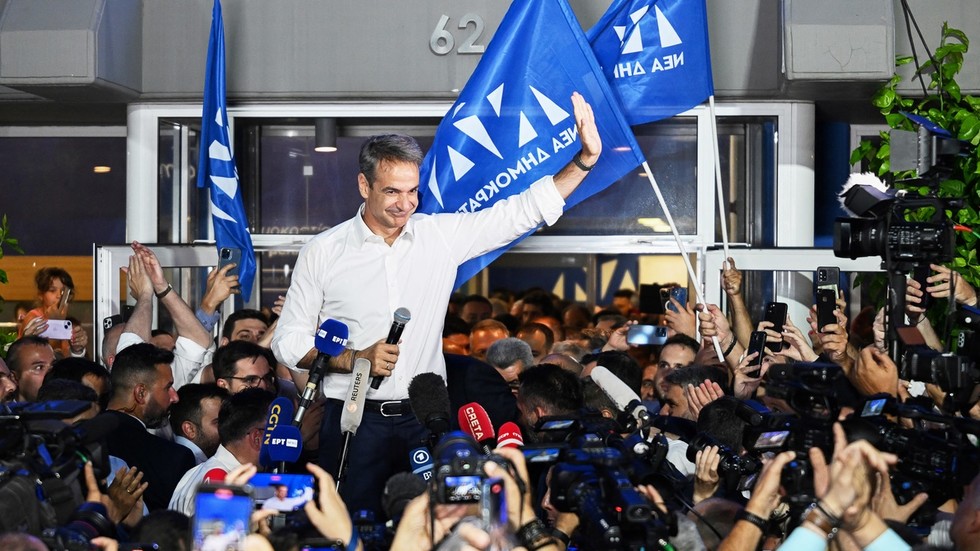
The New Democracy party has secured a parliamentary majority under a new voting system

Leader of Greece’s conservative party New Democracy Kyriakos Mitsotakis waves to supporters during an election evening event after general elections in central Athens, on June 25, 2023. © ARIS MESSINIS / AFP
Greece’s ruling New Democracy (ND) party secured a parliamentary majority on Sunday, avoiding the need for coalition talks. The ballot was the second in five weeks and showed a similar level of support for the conservative group as in the previous round, although a new majority bonus system gave it additional seats.
The ND party won 158 seats in the country’s 300-seat legislature under the new arrangement, which awards the winner between 25 and 50 bonus seats depending on performance. It received over 40% of the vote – about the same percentage as it did on May 21, when it won 146 seats. On that occasion, it failed to find a partner for a coalition government among the four other groups that crossed the 3% threshold.
ND leader Kyriakos Mitsotakis, who stepped down as prime minister after the inconclusive victory last month and installed a caretaker government, will now return for a second term in office.
Syriza, the left-wing party of former prime minister Alexis Tsipras, suffered the biggest setback at the ballot box, securing just 47 seats, compared to 86 in the 2019 election and 71 in May. His coalition government introduced the purely proportional system, under which he lost to Mitsotakis four years ago.

Two right-wing political forces, the Spartans and the Victory party, which previously did not have seats in parliament, will now have small factions projected to be between ten and 12 representatives each. Politico has branded the new composition the “most rightward slant since the restoration of democracy in 1974,” when a military dictatorship was abolished in Greece.
Another newcomer in the legislature is the left-wing Course of Freedom party, whose leader Zoe Konstantopoulou briefly served as speaker in 2015. It won an estimated eight seats on Sunday.
Mitsotakis ran on a promise to boost the economy, improve Greece’s national credit rating and lift wages. Like many other EU nations, the country is experiencing a cost-of-living crisis. The long-term effects of the debt crisis that Athens entered more than a decade ago have added to issues across the bloc. A major tourist destination, Greece was affected by the loss of Russian holidaymakers, as the EU pushed to sanction Moscow with visa restrictions.



